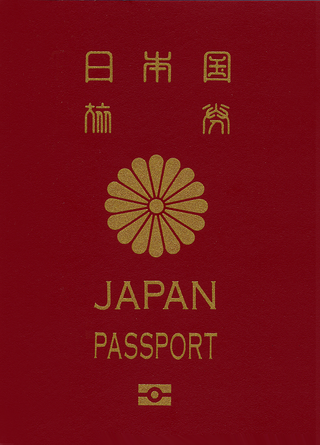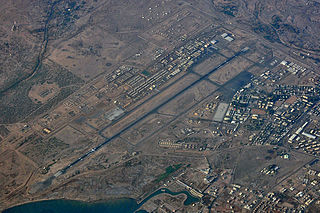Policy on permits required to enter Japan


Visitors to Japan must obtain a visa from one of the Japanese diplomatic missions, unless they come from one of the visa-exempt countries.
| This article is part of a series on |
| Politics of Japan |
|---|
 |


Visitors to Japan must obtain a visa from one of the Japanese diplomatic missions, unless they come from one of the visa-exempt countries.



Holders of ordinary passports of the following jurisdictions do not need a visa to stay in Japan: [1] [2]
90 days
30 days
15 days
14 days |
E - Nationals of Austria, Ireland, Germany, Liechtenstein, Mexico, Switzerland and the United Kingdom who plan to stay in Japan for more than 90 days but less than 6 months must apply for an extension at Ministry of Justice.
R - Passport must be registered at a Japanese diplomatic mission. The registration is valid for three years or until the passport expires, whichever comes first.
PB - Biometric passport required.
PM - Machine-readable passport required.
1 - For holders of Hong Kong SAR passports or British National (Overseas) passports who have the right of abode in Hong Kong.
2 - For holders of Macao SAR passports.
3 - For holders of Taiwan passports that include a personal identification number.
4 - For British citizens or British Nationals (Overseas).
| Date of visa changes | ||
|---|---|---|
Visa exemption:
Cancelled: |

Holders of diplomatic, official or service passports of the following countries may enter Japan without a visa for a maximum period of 90 days each visit (unless otherwise stated): [80]
Holders of diplomatic and official passports of other countries to whom a visa exemption applies when using an ordinary passport are also exempted from a visa, but are granted the status of residence as temporary visitors under the same conditions and maximum stay as with an ordinary passport. This exemption does not apply to holders of diplomatic and official passports of Taiwan, and to those of the United States traveling for official purposes. [80]
Holders of passports of the following jurisdictions who also hold an APEC Business Travel Card (ABTC) containing the code "JPN" on the reverse may travel to Japan without a visa for business purposes for stays of up to 90 days: [83]
Holders of ordinary passports of and foreign nationals who reside in the following countries and territories can apply and obtain a single entry e-visa individually. The duration of stay for these jurisdictions is up to 90 days (unless otherwise noted). e-Visa holder must arrive in Japan by air. [84] [85]
1 - Nationals of these countries are not visa exempt and must obtain a visa (including e-visa) in advance.
There are regulations for specific e-visa applications: [84]
Japan had a special visa policy for nationals of countries of the Commonwealth of Independent States who could not provide their financial guarantees and get a visa on their own but instead they had to apply through an approved travel agency or be invited by a resident or a citizen of Japan. [86]
These requirements were lifted for citizens of Russia on 1 January 2017, [87] Georgia, Kazakhstan, Kyrgyzstan, Tajikistan, Turkmenistan and Uzbekistan on 5 June 2017, [88] [89] Armenia on 1 September 2017, [90] Azerbaijan on 1 December 2017 [91] and Belarus, Moldova and Ukraine on 1 January 2018. [92] [93]
In addition, the Ministry of Foreign Affairs of Japan has special visa policies for nationals of China and the Philippines. Nationals of these countries also must apply through an accredited travel agent or be invited by a Japanese citizen or a resident of Japan. [94] [95]
As of 2014, nationals of the Philippines and Vietnam travelling in a group through a registered travel agency may obtain entry visas for tourist visits up to 15 days in a simplified process that requires fewer documents than before. [96] Moreover, nationals of India, the Philippines and Vietnam can obtain multiple-entry visas providing that they have visited Japan and other G7 countries or they have "sufficient financial capability". [97] [98]
As of 2015, Chinese tourists travelling on approved cruise ships do not need a visa. They must embark and disembark the same specified ships. [99]
Japan was reportedly set to ease visa requirements for visitors from key markets, such as India, China and Vietnam, starting in the summer of 2016. [100]
A new wave of visa liberalization policies started on 17 October 2016 for Chinese nationals [101] and on 1 January 2018 for Indian nationals. [102]
Due to the COVID-19 pandemic, Japan suspended the visa exemptions for most countries from March 2020, and later for all countries, and restored them on 11 October 2022. [103]
According to this source (https://www.in.emb-japan.go.jp/itpr_ja/11_000001_01148.html?s=08), Japan has now allowed Indian nationals and those residing in India to be eligible for e-Visa.
In 2015 4,768,286 Japanese visas were issued. [104] It is an increase of 66% from 2014 when 2,871,639 visas were issued and the highest number ever recorded. [105]
Most visas were applied for by nationals of the following countries: [106] [107] [108] [109]
| Application from | Issued visas in 2017 | Share | Issued visas in 2015 | Share | Issued visas in 2014 | Share | Issued visas in 2013 | Issued visas in 2012 |
|---|---|---|---|---|---|---|---|---|
| 4,504,718 | 77% | 3,780,773 | 79% | 2,048,106 | 71% | 971,542 | 1,112,407 | |
| 325,564 | 5% | 225,676 | 5% | 163,386 | 6% | 99,258 | 74,424 | |
| 239,201 | 4% | 162,273 | 3% | 141,321 | 5% | 122,376 | 90,498 | |
| 226,993 | 4% | 139,236 | 3% | 96,648 | 3% | 65,305 | 39,581 | |
| 96,658 | 2% | 74,088 | 2% | 66,696 | 2% | 55,622 | 50,938 | |
| 67,445 | 1% | 47,813 | 1% | 57,606 | 2% | 54,948 | 45,468 | |
| 50,885 | 1% | 38,798 | 1% | 34,217 | 1% | 28,697 | 35,049 | |
| — | — | 20,857 | 1% | 21,322 | 1% | 183,684 | 228,528 | |
| — | — | 20,399 | 0% | 18,861 | 1% | 21,644 | 22,964 | |
| — | — | 19,349 | 0% | 19,017 | 1% | — | — | |
| — | — | — | — | — | — | 70,231 | 115,348 | |
| Others | 357,548 | 6% | 239,026 | 5% | 204,459 | 7% | 191,118 | 171.316 |

Most visitors arriving to Japan were from the following countries of nationality: In 2015 most visas were issued for group sightseeing (1,957,498) and individual sightseeing (1,126,209). There were 62,052 multiple-entry visas for Okinawa and 10,500 multiple-entry visas for three prefectures in Tōhoku.
| Country/Territory | 2023 [112] | 2022 [113] | 2019 [114] | 2018 [115] | 2017 [116] | 2016 [117] | 2015 [118] | 2014 [119] | 2013 [120] |
|---|---|---|---|---|---|---|---|---|---|
| Total |

There is also a stamp type Japan Re-entry Permit (再入国許可), which is pasted into a foreign passport or other travel document servers as an re-entry visa.
Those who are traveling outside Japan for longer than 1 year are required to have a re-entry permit. Normally, the re-entry permit will be applied to a passport in the form of a self-adhesive sticker.
For those who do not have a valid passport, a booklet type re-entry Permit will be issued at the same time as the re-entry Permit stamp issues.
In the new system as of July 2012, the maximum period for a re-entry permit is 6 years.
From July 9, 2012, foreign nationals residing legally in Japan who are leaving Japan for no more than 1 year will not be required to apply for a re-entry permit prior to leaving, but can instead apply for a special re-entry permit at the point of departure. [121] Previously if a foreign national left Japan without a re-entry permit, their visa or legal residency status could be revoked.
The special re-entry permit system does not apply to those falling under any of the following.
The special re-entry permit is not available for booklet type re-entry Permit holders and they must have a stamp type re-entry permit on their booklet since the valid date of the booklet re-entry Permit is limited to the stamp.
As a result of sanctions against North Korea, entry except transit is refused to North Korea nationals [1] [122] [123]
The Happy Monday System is a set of modifications to Japanese law in 1998 and 2001 to move a number of public holidays in Japan to Mondays, creating three-day weekends for those with five-day work weeks. It is the Japanese equivalent of the 1968 Uniform Monday Holiday Act in the United States.

Japanese passports are issued to Japanese nationals to facilitate international travel. From 2018 to 2022, it was ranked first on the Henley Passport Index for visa-free travel, and third as of July 2023, with holders able to travel visa-free to 189 countries and territories.

iXIT Corporation, formerly known as Index Corporation, is a Japanese corporate information and communications technology company owned by Sawada Holdings.

A Mexican visa is a document issued by the National Institute of Migration, dependent on the Secretariat of the Interior, with the stated goal of regulating and facilitating migratory flows into the country.
Visitors to Israel must obtain a visa from one of the Israeli diplomatic missions unless they come from one of the visa exempt countries.
All visitors must hold a passport that is valid for 6 months after the date of departure from Israel.

The visa policy of Costa Rica requires that any foreign national wishing to enter Costa Rica must obtain a visa from one of the Costa Rican diplomatic missions, unless they hold a passport issued by one of the 95 eligible visa exempt countries or if the fulfill the requirements for a substitute visa. Costa Rican visas are documents issued by the Dirección General de Migración y Extranjería, which is part of the Ministry of Interior and Police, with the stated goal of regulating and facilitating migratory flows.

The Japan–Manchukuo Protocol was signed on 15 September 1932, between Japan and the state of Manchukuo. The Treaty confirmed the recognition by Japan of the Manchukuo state, following the Japanese invasion of Manchuria in 1931, and the establishment of a Manchurian state on 1 March 1932. The treaty also defined a mutual defence agreement, allowing Japanese troops to station in Manchukuo, and thereby effectively occupy the country.

Visitors to the Dominican Republic must obtain a visa from one of the Dominican Republic diplomatic missions unless they are citizens of one of the visa-exempt countries.

Visitors to Chile must obtain a visa from one of the Chilean diplomatic missions unless they come from one of the visa exempt countries.
Among the several native ethnic groups of Japan, the predominant group are the Yamato Japanese, who trace their origins back to the Yayoi period and have held political dominance since the Asuka period. Other historical ethnic groups have included the Ainu, the Ryukyuan people, the Emishi, and the Hayato; some of whom were dispersed or absorbed by other groups. Ethnic groups that inhabited the Japanese islands during prehistory include the Jomon people and lesser-known Paleolithic groups. In more recent history, a number of immigrants from other countries have made their home in Japan. According to census statistics in 2018, 97.8% of the population of Japan are Japanese, with the remainder being foreign nationals residing in Japan. The number of foreign workers has been increasing dramatically in recent years, due to the aging population and the lack of labor force. A news article in 2018 states that approximately 1 out of 10 young people residing in Tokyo are foreign nationals.

Visitors to Uruguay must obtain a visa from one of the Uruguayan diplomatic missions unless they come from one of the visa exempt countries.

A foreign national wishing to enter Lesotho must obtain a visa unless they are a citizen of one of the eligible visa exempt countries.

Visitors to Tunisia must obtain a visa from one of the Tunisian diplomatic missions unless they are citizens of one of the visa-exempt countries.

Visitors to El Salvador must obtain a visa from one of the Salvadoran diplomatic missions, unless they come from one of the visa exempt countries. All visitors must hold a passport valid for 6 months.
Visitors to Guatemala must obtain a visa from one of the Guatemalan diplomatic missions, unless they come from one of the visa exempt countries.

Visitors to Honduras must obtain a visa from one of the Honduran diplomatic missions unless they come from one of the visa exempt countries. All visitors must hold a passport valid for 3 months.

The Japan Self-Defense Force Base Djibouti is a military base operated by the Japan Self-Defense Forces (JSDF) located in Ambouli, Djibouti alongside the Djibouti–Ambouli International Airport.

Umekōji-Kyōtonishi Station is a railway station located in Kankijichō, Shimogyō-ku, Kyoto. The station was opened on 16 March 2019, and operated by West Japan Railway Company, with station number JR-E02. The station is served by the Sagano Line.

Gunma 2nd District is a single-member constituency of the Japanese House of Representatives, the lower house of the National Diet. It is located on the island of Honshu, in Gunma Prefecture, and includes the cities of Isesaki and Kiryu, among others.

Gunma 3rd district is a single-member constituency of the House of Representatives in the Diet of Japan. It is located in south-eastern Gunma and consists of Ota, Tatebayashi and Ōra County.